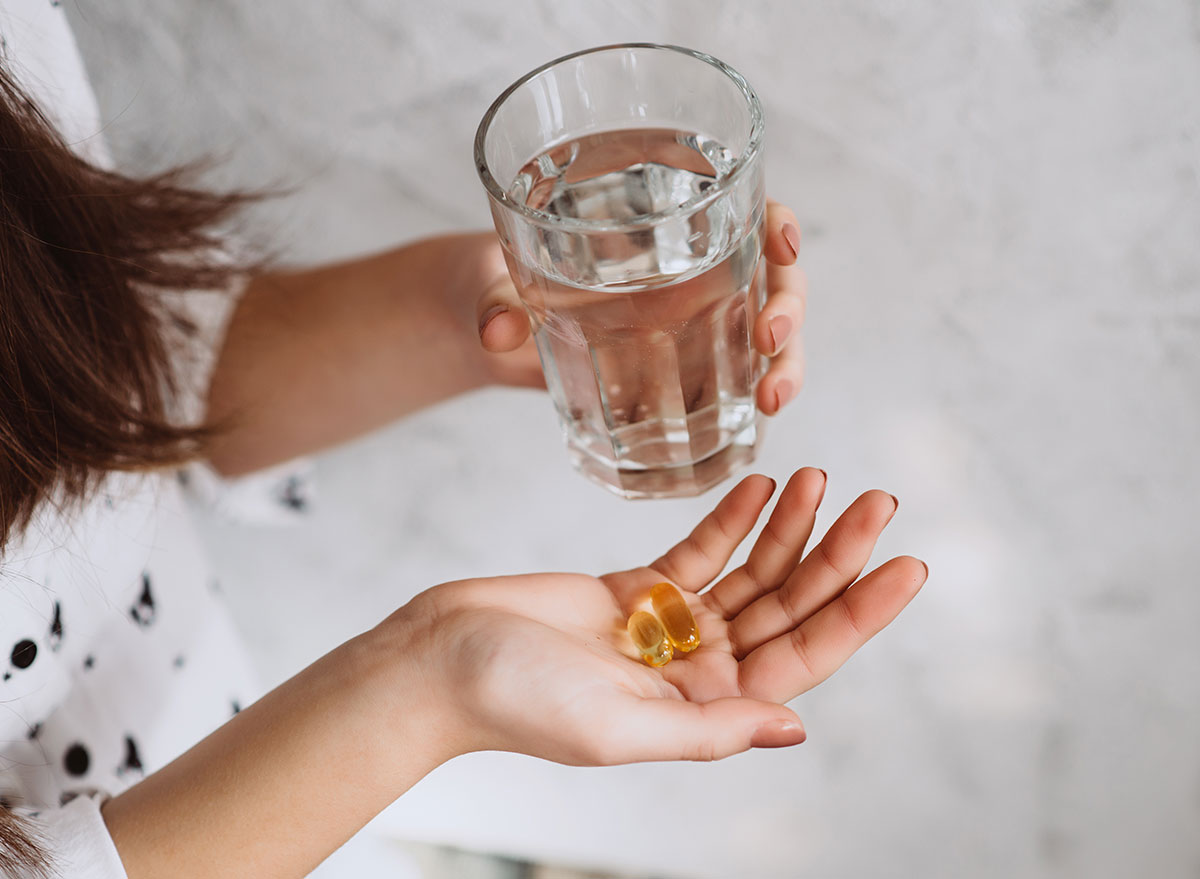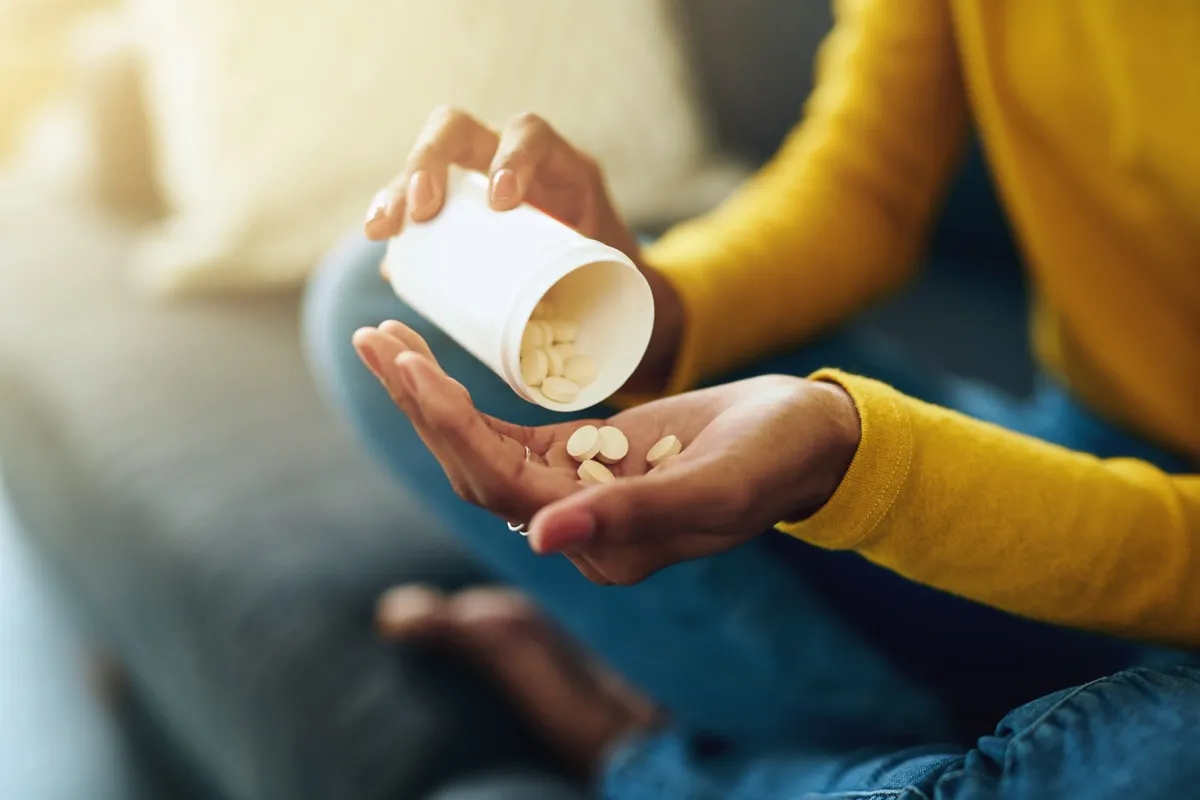Out of all the nutrients that we need to consume, vitamin D tends to be one of the most controversial. Extensive research and expert opinions have been thrown into the mix regarding vitamin D consumption, deficiency, and if you are in need of supplementation. But rarely are people talking about taking too much vitamin D, which, thanks to supplementation, can be happening easily.
According to the Dietary Reference Intake (DRI), established by the Institute of Medicine and the Food and Nutrition Board, the recommended dietary allowance (RDA) for vitamin D on a daily basis is 15 micrograms per day for adults under 70, and 20 micrograms for adults older than 70. When converted, this range is between 600 to 800 international units (IU).
While reaching toxic levels of vitamin D in your system is quite rare, the DRI does set a tolerable upper intake level (UL) of 100 micrograms per day for anyone over the age of 19.
To put this into perspective, a majority of vitamin D supplements on the market range between 1,000 to 10,000 IU, which equates between 25 micrograms to 250 micrograms per supplement.
So can this negatively affect your body if you hit over the UL amount of vitamin D needed for the day? We dove into the research behind taking too much vitamin D and the side effects you may not have known about if you supplement.
Oh, and don't worry—you can still hang out in the beautiful sunshine! Experts claim hanging in the sun won't overdo it on vitamin D in your system.
You could develop hypercalcemia.

Vitamin D is a fat-soluble vitamin that helps with calcium absorption in your body. Hence why many people say vitamin D is important to consume when you're older given the nature that calcium is a mineral that strengthens your bones. However, if you are overconsuming calcium (the DRI says between 2,000 to 2,500 milligrams UL a day depending on your age), your body could be at risk of developing hypercalcemia, according to the National Institute of Health.
Again, while reaching toxic levels of vitamin D is rare, the effects of hypercalcemia can be severe and lead to these other symptoms.
You may feel nauseous.

Nausea and vomiting are both symptoms that come with taking too much vitamin D and hypercalcemia.
You may feel tired.

Feeling fatigued? Your vitamin D supplement may be to blame. Taking too much vitamin D can result in feelings of tiredness, which also are linked to hypercalcemia.
You may feel irritable.

Irritability is also a common symptom of hypercalcemia and taking too much vitamin D. If this is something you are feeling regularly while taking a vitamin D supplement, it may be time to start evaluating your vitamin D consumption and ensuring you're not overdoing it.
There's a chance of developing kidney stones.

Lastly, one of the biggest side effects of hypercalcemia is developing kidney stones. One study published in The New England Journal of Medicine found that when the body experiences an increase in calcium (around 2,100 milligrams per day) with moderate amounts of vitamin D, the risk of developing kidney stones significantly increases. Plus, the study also shows that while hip bone density did increase for participants, the risk of hip fractures did not.
What if I'm not getting enough vitamin D?

There can be many circumstances where one person may not get enough vitamin D. First, sun exposure may be limited, or even protection from the UV rays by using sunscreen can create a barrier in getting a sufficient amount of vitamin D in a day.
Second, the foods that provide vitamin D are few and far between. Eggs, fish, mushrooms, fortified soy milk, fortified orange juice, as well as fortified dairy products, are sources of vitamin D. But if you follow a plant-based diet, getting enough vitamin D from dietary intake can become complicated.
In order to get a sufficient amount of vitamin D from the sun, you need to expose your skin to sunlight twice a week for 5 to 30 minutes at the sun's strongest times—between 10 a.m. and 4 p.m. If you find that you are getting enough through dietary sources as well as semi-regular exposure to the sun, then you likely don't need supplementation at all.
However, if this is difficult for your lifestyle, talk to your doctor about your current vitamin D intake and if supplementation is needed—especially given that a true vitamin D deficiency can cause an increased risk of colon cancer, cardiovascular disease, falls at an older age (due to weaker bones), and even higher risk of mental illness. Low vitamin D has also been linked to increased symptoms of COVID-19.